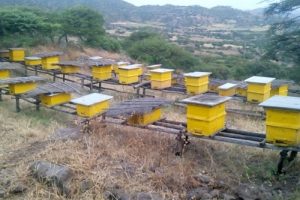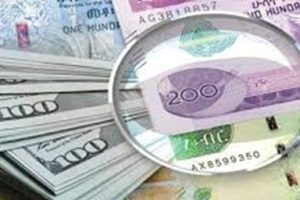
Establishing Special Economic Zones (SEZs) is one of the procedures that countries implement to make their national development sustainable by increasing their investment sector. For their contribution in creating job opportunities; the expansion of domestic logistics industry; inflow of foreign direct investment; transfer of technology, and the important role they play in increasing the skills of professionals and workers and reducing inflation; as well as the significant benefits they contribute to the smoothing of export and import trade and the improvement of the national economy in general, countries establish and expand special economic zones.
The development of free economic zones is necessary for the success of “Agenda 2063”, which aims to bring about economic integration, as well as agricultural development, food security, industrial development and economic structural change, which is crucial to bring about a continental market with free movement of people, capital, goods and services as mentioned in the founding document of African Free Trade Zone agreement.
In addition, it was pointed out in the document that free economic zones play an important role in creating and expanding a guaranteed market for goods and services in the member countries of the agreement, in order to establish sufficient infrastructure for trade and investment, as well as by reducing or removing taxes step by step and removing non-tax barriers that hinder trade and investment.
Ethiopia, which has a large population and other potential resources including land, has been repeatedly said to have lost the economic benefits that should be gained from the development of these regions due to its delay in establishing special economic zones. It has been said that some of the obstacles that have tied the feet of the country’s economic activities can be solved by the benefits of special economic zones.
Therefore, since establishing special economic zones is necessary to increase the benefits of the country, works to develop the zones have been started. The Dire Dawa Free Trade Zone, which was inaugurated on 14 August, 2022, is part of this effort.
Besides, the “Addis Tomorrow” special economic zone to be built in Addis Ababa city and the “Geda” special economic zone to be built in the Oromia region are part of the construction of special economic zones at the national level. The “Addis Tomorrow” Special Economic Zone, which will be built on 35 hectares, is a huge project to be constructed by Addis Ababa City Administration and the Chinese “First Highway Engineering Group”. It includes science and technology Park, business and commercial, residential and entertainment centers.
In its 11th regular meeting held on 2nd September, 2022, the FDRE Council of Ministers discussed the draft policy document of the National Special Economic Zone and unanimously decided to put the policy into effect. The decision was made because it is important to create enabling conditions for Ethiopia to be an active participant and beneficiary of the international and regional trade network which is rapidly expanding and developing from time to time, and has a significant contribution to national economic growth.
It is also stated that the policy will improve the country’s export trade system; increase the attractiveness of foreign direct investment; enhance export trade capacity; create wide job opportunities and realize systems that will help to expand dry ports in the country’s main trade corridors and streamline logistics services.
According to Assistant Professor Habtamu Girma, a lecturer in Economics at Jigjiga University and a PhD student at Ibadan University, Special Economic Zones contribute significantly to job creation, production supply and foreign exchange earnings by increasing investment. The main objectives of these regions are to create employment opportunities and increase production and productivity, expand export trade and increase foreign exchange earnings, and attract capital and technology.
Special economic zones have their own production location/scope, administrative system, and tax laws and customs system. The regions will increase the number of entities engaged in transportation and logistics, raw material supply, and product supply and marketing activities. This is an indication that the development of special economic zones is directly related to the growth of investment.
As to him, special economic zones encourage private and public investments and allow the investment sector to grow. On the other hand, special economic zones are in need of extensive infrastructure development, so the government can engage in infrastructural investment and create an opportunity to stimulate government investment. In general, special economic zones create favorable opportunities for investors, so investors will be motivated to engage in investment sectors.
Mola Alemayehu (PhD), a professor of economics at Haramaya University and a senior researcher at “Frontier” research and consulting firm, explained that Special Economic Zones are established through specific procedures in selected areas that have potential for the development of the sectors. These regions will be established with the aim of attracting investment capital and will have their own commercial, tax and other laws.
They have a significant role in attracting investment capital and foreign direct investment. They allow for a meaningful increase in investment flow by increasing production and productivity, creating job opportunities and making technology transfer a reality. As the regions are working according to the procedures that are favorable for investment growth, they are economic growth areas that create a favorable opportunity to grow the investment sector.
“Special economic zones are designed and put into operation to attract foreign direct investment. Their overall objective is to boost the national economy by attracting investment. They are places that are organized to attract investors in a better way,” he said. Recalling that China is the leader in the field of special economic development, he mentioned that other Asian and South American countries are also showing great progress in this field.
Because of the legal procedures applied in special economic zones are simplified and reduced bureaucratic complications, they make it relatively easy for investors to engage in investment activities. Investors, importers and exporters and organizations working in the free trade zone will benefit from various incentives. This will play a significant role in increasing domestic and foreign direct investment.
Stating that the trade (tax and customs) rules in special economic zones are different from other business practices and rules, Assistant Professor Habtamu explained that investors who work in the zones will benefit from tax reduction and a simple and convenient customs system.
For his part, Dr. Mola said, “One of the benefits of special opportunities for investors in different economic zones is the benefit of tax relief and discounts.” They also enjoy tariff reduction and benefit from better infrastructural provisions. In general, as the regions contain attractive benefits for investors, they encourage the participation of investors.
He further said that Ethiopia has favorable conditions and opportunities to realize the development of a special economic zone as it has a favorable climate, a lot of manpower, and potential natural resources. He recommended that advanced preparations should be made.
“When foreign investors come to Ethiopia, they come from better developed countries with better service delivery, law and bureaucracy, so the service delivery should be made efficient and modern.” The monitoring and control system should be strengthened. When laws are amended, it is necessary to ensure that there are no loopholes and that they are convenient to work. In general, there is a need to make an effort to establish a quality system,” he said, noting that the effectiveness of the development of special economic zones requires a great deal of effort.
Assistant Professor Habtamu, for his part, stressed that the experiences Ethiopia has taken from other countries in the implementation of the development of special economic zones should be looked at in depth. When special economic zones are established, land invasions and unjustified land price increases may occur, so there is a need to develop strict legal frameworks and establish a strong control and monitoring system.
He also recommend that enhancing peace and security should not be forgotten and that the Ministry of Trade and Regional Cooperation, the Ethiopian Investment Commission, other trade and investment sector institutions and the administrative bodies of the areas where the Special Economic Zones will be established should work together on the overall operation of the zones.
The fact that Ethiopia is far away from the system of special economic zone that provides many benefits has deprived it of many benefits. It cannot be denied that lack of these benefits and opportunities had a negative impact on her overall development. Therefore, it is necessary to strengthen the efforts that have been started to establish special economic zones so that the national economic development can register a meaningful change.
BY BACHA ZEWDIE
THE ETHIOPIAN HERALD THURSDAY 2 NOVEMBER 2023





